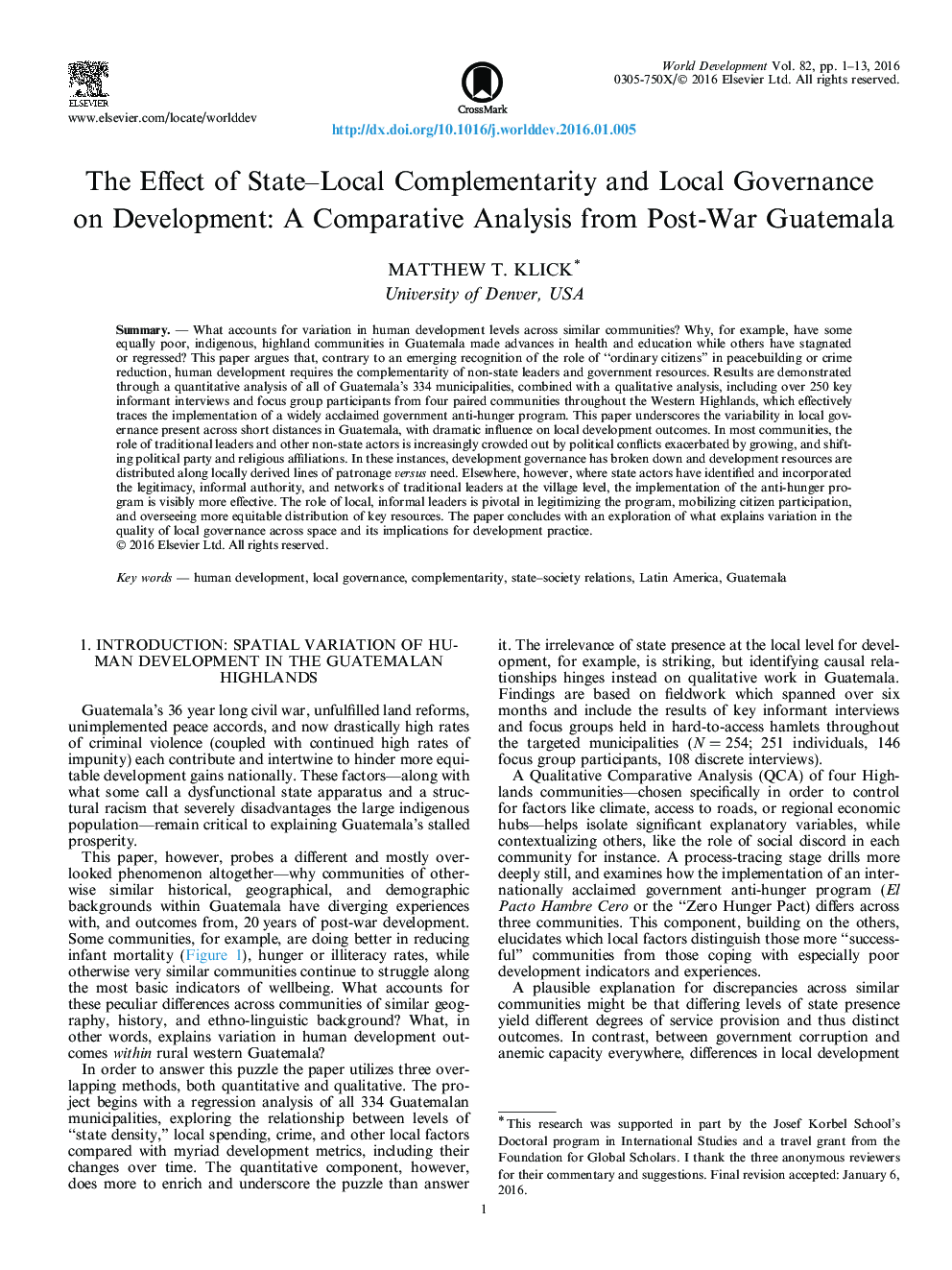| Article ID | Journal | Published Year | Pages | File Type |
|---|---|---|---|---|
| 991242 | World Development | 2016 | 13 Pages |
•The density of state institutions has no bearing on development outcomes in Guatemala.•Local political milieus which vary over space determine scope of development practice.•Complementarity between state and local actors shapes best outcomes.
SummaryWhat accounts for variation in human development levels across similar communities? Why, for example, have some equally poor, indigenous, highland communities in Guatemala made advances in health and education while others have stagnated or regressed? This paper argues that, contrary to an emerging recognition of the role of “ordinary citizens” in peacebuilding or crime reduction, human development requires the complementarity of non-state leaders and government resources. Results are demonstrated through a quantitative analysis of all of Guatemala’s 334 municipalities, combined with a qualitative analysis, including over 250 key informant interviews and focus group participants from four paired communities throughout the Western Highlands, which effectively traces the implementation of a widely acclaimed government anti-hunger program. This paper underscores the variability in local governance present across short distances in Guatemala, with dramatic influence on local development outcomes. In most communities, the role of traditional leaders and other non-state actors is increasingly crowded out by political conflicts exacerbated by growing, and shifting political party and religious affiliations. In these instances, development governance has broken down and development resources are distributed along locally derived lines of patronage versus need. Elsewhere, however, where state actors have identified and incorporated the legitimacy, informal authority, and networks of traditional leaders at the village level, the implementation of the anti-hunger program is visibly more effective. The role of local, informal leaders is pivotal in legitimizing the program, mobilizing citizen participation, and overseeing more equitable distribution of key resources. The paper concludes with an exploration of what explains variation in the quality of local governance across space and its implications for development practice.
